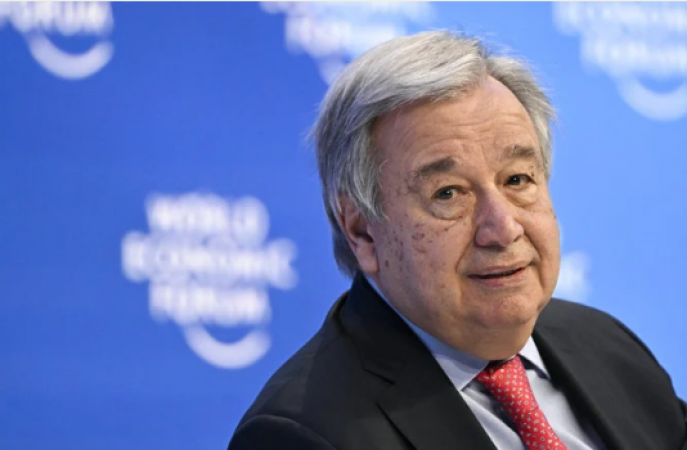
Davos: UN Secretary-General Antonio Guterres urged world leaders and companies to accelerate their efforts to achieve net-zero carbon emissions during his Wednesday address at the World Economic Forum in Davos, Switzerland.
Additionally, he urged business executives to present "credible and transparent" plans outlining their plans to reach net-zero by the end of the year.
When setting their climate targets, many companies used "ambiguous or vague" standards, Guterres warned, which "could mislead consumers, investors and regulators with false narratives."
Also Read: NZ PM Jacinda Ardern announced to step down, will resign next month
He told attendees at the WEF's annual meeting that it "feeds a culture of climate misinformation and confusion and leaves the door open to greenwashing."
“Real emissions reductions must primarily underpin the transition to net-zero, rather than relying primarily on carbon credits and shadow markets. We (the UN) established an expert group on net-zero emissions commitments for this reason.
Guterres cautioned that time is running out to prevent disasters linked to man-made climate change from increasing in size and frequency. He continued, "We're looking into the eye of a Category 5 hurricane."
According to scientists, to prevent the worst effects of climate change, any increase in global temperature should be kept at no more than 1.5°C above pre-industrial levels. Since the late 1800s, the planet's average surface temperature has already risen by about 1.8 C.
Also Read: Climate Crisis being the center of the session at the World Economic Forum
Guterres warned, the aspirational goal of keeping global warming to 1.5 °C was "going up in smoke", and he urged the world to "end the addiction to fossil fuels".
He claimed that despite knowing full well that their business model is incompatible with human existence, fossil fuel producers and those who support them continue to race to increase production. Although we know that the thawing of ecosystems is a sure, cold-hard scientific fact, this madness belongs in science fiction.
At the COP21 United Nations climate change conference in 2015, 196 countries ratified the Paris Agreement, a binding global climate change agreement that vowed to step up efforts to cut greenhouse gas emissions by 45 percent before 2030.
They also needed to increase their resistance to the negative effects of climate change, promote regional and international cooperation, and work towards net-zero emissions by 2050.
According to data compiled by the UK-based Energy and Climate Intelligence Unit, 137 countries have committed to becoming carbon neutral by 2050. 124 of them have targets for the year 2050.
The only two countries that have achieved carbon neutrality and are actually carbon negative to date are Bhutan and Suriname. 24 countries have made their climate targets part of official policy. They include some of the world's biggest emitters, such as Brazil, China, Germany and the US. Five countries are working on the legislation, including Canada, South Korea and several EU member states.
Also Read: Syrian refugees who survived drowning at sea now risk deportation
However, it is projected that global greenhouse gas emissions will still increase by about 11% by 2030 compared to 2010, even if the 193 parties to the Paris Agreement implement their current commitments.